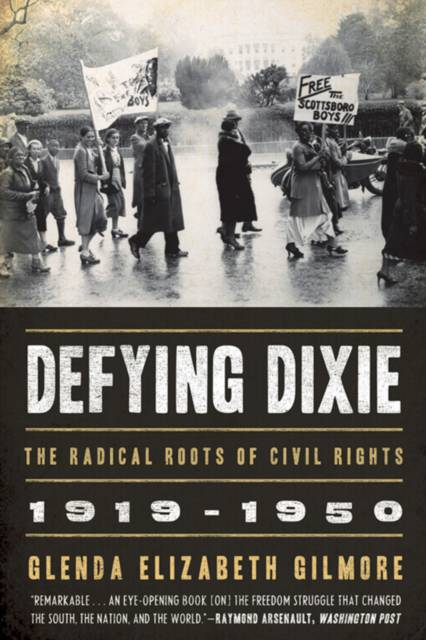
- Afhalen na 1 uur in een winkel met voorraad
- Gratis thuislevering in België vanaf € 30
- Ruim aanbod met 7 miljoen producten
- Afhalen na 1 uur in een winkel met voorraad
- Gratis thuislevering in België vanaf € 30
- Ruim aanbod met 7 miljoen producten
Defying Dixie
The Radical Roots of Civil Rights, 1919-1950
Glenda Elizabeth GilmoreOmschrijving
The civil rights movement that looms over the 1950s and 1960s was the tip of an iceberg, the legal and political remnant of a broad, raucous, deeply American movement for social justice that flourished from the 1920s through the 1940s. This rich history of that early movement introduces us to a contentious mix of home-grown radicals, labor activists, newspaper editors, black workers, and intellectuals who employed every strategy imaginable to take Dixie down. In a dramatic narrative Glenda Elizabeth Gilmore deftly shows how the movement unfolded against national and global developments, gaining focus and finally arriving at a narrow but effective legal strategy for securing desegregation and political rights.
Specificaties
Betrokkenen
- Auteur(s):
- Uitgeverij:
Inhoud
- Aantal bladzijden:
- 690
- Taal:
- Engels
Eigenschappen
- Productcode (EAN):
- 9780393335323
- Verschijningsdatum:
- 1/08/2009
- Uitvoering:
- Paperback
- Formaat:
- Trade paperback (VS)
- Afmetingen:
- 137 mm x 208 mm
- Gewicht:
- 748 g

Alleen bij Standaard Boekhandel
Beoordelingen
We publiceren alleen reviews die voldoen aan de voorwaarden voor reviews. Bekijk onze voorwaarden voor reviews.











